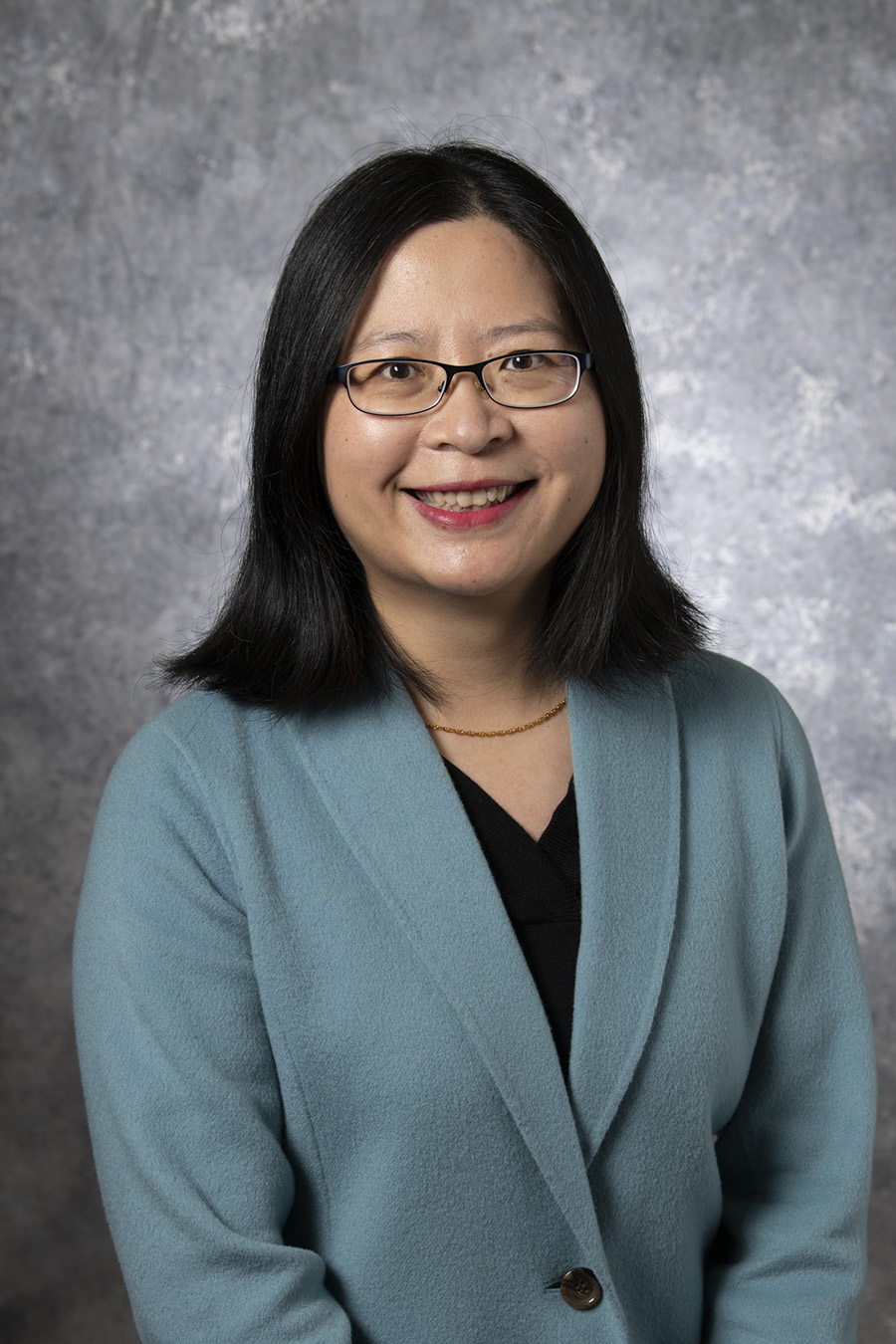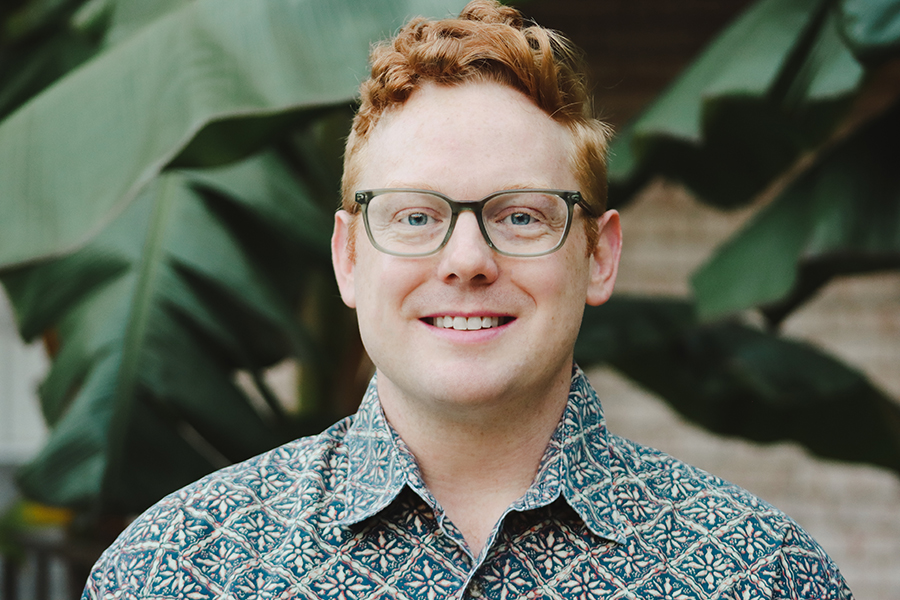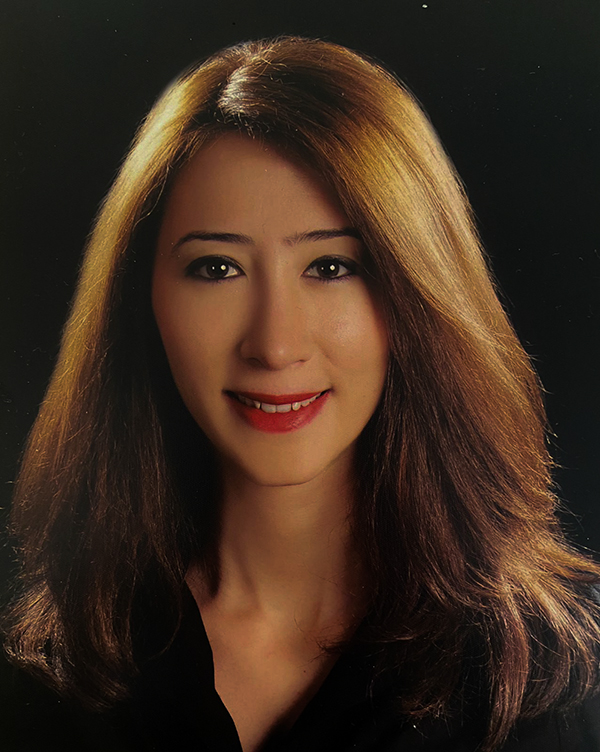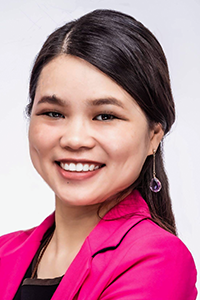 LeaAnne Daughrity, Ph.D.
LeaAnne Daughrity, Ph.D.
Education
Ph.D., Learning Technologies, University of North Texas (UNT), 2021
M.A., Instructional Technologies, Texas A&M University - Commerce (TAMUC)
M.A., Public Relations, The University of Alabama
Research Interests
The intersections of artificial intelligence, immersive technologies, and learning design--particularly how these tools can be used to enhance pedagogical strategies and facilitate engaging and effective learning experiences in diverse educational contexts.
Representative Publications
An, Y., Kaplan-Rakowski, R., Yang, J., Connan, J., Kinard, W., Daughrity, L. (2021). Examining K-12 teachers' feelings, experiences, and perspectives regarding online teaching during the early stage of the COVID-19 pandemic. Educational Technology Research and Development. Springer.
Chen L, Shah P, Prabhu K, Daughrity L, Shetty S, Lopez Delgado M, Hamidi F, Godwin K, Lipsmeyer L. ABii at School: Some Initial Findings from a Long-term In-school Field Study with a Commercial Robot-assisted Learning System. March 2023, The ACM/IEEE International Conference on Human-Robot Interaction (HRI) 2023, Robot for Learning Workshop
Daughrity, Lea Anne. A Single Case Study of a MakerBus in K-12 Education, dissertation, May 2021; Denton, Texas. (https://digital.library.unt.edu/ark:/67531/metadc1808446/: accessed May 24, 2023), University of North Texas Libraries, UNT Digital Library, https://digital.library.unt.edu;.
Hayes, A., Daughrity, L., Meng, N. (2020). Approaches to integrate virtual reality into K-16 lesson plans: An introductory workshop for teachers.
Daughrity, L., Ma, S., Mahaffey, F.D. (2019). Inspired to make. Association for Educational Communications and Technology. Las Vegas, NV. October 19-25.
Supplementary
Professional Experience
More than 15 years of experience in leading STEM curriculum development, managing instructional technology, teaching at various grade levels, and leveraging innovative tools and instructional design methodologies.
Additional Information
Enjoys spending time with family, recreating at the lake, golfing, and socializing.
J. Enrique Hernández-Zavaleta, Ph.D.
Education
Ph.D., Mathematics Education, Cinvestav, IPN, Mexico City
Postdoctoral Fellow, University of Florida, FL, USA
Postdoctoral Fellow, University of Calgary, AB, Canada
M.S., Complex Systems Modeling, University of Mexico City
B.A., Mathematics, Autonomous University of Mexico
Research Interests
My research interests span various fields, reflecting my passion for interdisciplinary exploration. I am currently engaged in Mathematical Modeling and Social Justice research, seeking to address critical societal issues by designing and testing modeling tasks for K-12 classrooms. My interests involve Agent-Based Modeling and its implications for K-12 mathematics classrooms. I am intrigued by the impact of educational video games on the development of mathematical thinking and the connections between mathematical learning and computational thinking. Lastly, I investigate the role of socio-epistemological approaches to mathematical learning and teaching and the relationships between the complexity sciences and mathematics education.
Representative Publications
Hernández-Zavaleta, J. E., Becker, S., Clark, D., Brady, C., & Cao, L. (Submitted). Learning About Symmetries and Transformations in K-12 2D Geometry: A Review of Theoretical Frames, Themes, and Media from 1990 to Present.
Hernández-Zavaleta, J. E., Brady, C., Becker, S., & Clark, D. B. (2023). Vygotskian hybridizing of motion and mapping: Learning about geometric transformations in block-based programming environments. Mathematical Thinking and Learning, 1-35. https://doi.org/10.1080/10986065.2023.2191074.
Hernández-Zavaleta, J. E., Preciado Babb, A. P., & Cantoral, R. (2023). Comparison as a Social Practice in the Analysis of Chaotic Phenomena: the Case of the Double Pendulum. International Journal of Science and Mathematics Education, 1-20. https://doi.org/10.1007/s10763-023-10363-0.
Clark, D. B., Hernández-Zavaleta, J. E., & Becker, S. (2023). Academically meaningful play: Designing digital games for the classroom to support meaningful gameplay, meaningful learning, and meaningful access. Computers & Education, 194, 104704. https://doi.org/10.1016/j.compedu.2022.104704.
Hernández-Zavaleta, J. E., Carrasco Henriquez, E., & Carrión Velázquez, V. (2022). The configuration-interaction-emergence triad: a complex look at learning processes in the Mathematics classroom. Educação Matemática Debate, 6(12), 1–23. https://doi.org/10.46551/emd.v6n12a12.
Becker, S., Clark, D., Gupta, M., Kannappan, S., Wong, B., & Hernández-Zavaleta, J. E. (2022). More than a Eureka Moment: Undergraduate Students’ Reflective Understanding of Science Inquiry in a Citizen Science Project. Alberta Science Education Journal, 48(1), 22–36.
Hernández Zavaleta, J., & Cantoral Uriza, R. (2018). Caracterización de prácticas asociadas con la predicción en el enfrentamiento ante lo errático: un estudio socioepistemológico [Characterization of practices related to prediction in facing the erratic: A socio-epistemological study]. Transformación 14(2), 177–189. https://revistas.reduc.edu.cu/index.php/transformacion/article/view/2271.
Supplementary
Professional Experience
Having spent over twelve years as a high school and undergraduate mathematics teacher, more than a decade of experience designing and implementing international workshops for K-12 teachers on various topics related to mathematics, technology, and STEM, and more than three years leading and developing postdoctoral projects in US and Canada funded by the NSF, I have honed my skills in working with students and teachers encouraging an interdisciplinary approach to mathematics education that will effectively prepare tomorrow’s leaders in mathematics classrooms.
Additional Information
Enjoys board games, video games, playing the guitar, and outdoor activities including biking, skating, camping, and hiking.
Elizabeth M. McCollom, Ph.D.
Education
Ph.D., School Psychology, University of Missouri
M.A., School Psychology, University of Missouri
B.S., Psychology, Loyola University New Orleans
B.A., Latin American Studies, Loyola University New Orleans
Research Interests
Lizzie's research interests include academic intervention and assessment, multi-tiered systems of support (MTSS), implementation science, consultation, coaching, and multilingual learners.
Representative Publications
Burns, M.K., Young, H., McCollom, E. M., Stevens, M. A., & Izumi, J. T. (2022). Predicting intervention effects with preintervention measures of decoding: evidence for a skill-by-treatment interaction with kindergarten and first-grade students. Learning Disability Quarterly, 1-11. https://doi.org/10.1177/07319487221113026.
Burns, M. K., VanDerHeyden, A. M., Duesenberg-Marshall, M. D., Romero, M. E., Stevens, M. A., Izumi, J. T., & McCollom, E. M. (2022). Decision accuracy of commonly used dyslexia screeners among students who are potentially at-risk for reading difficulties. Learning Disability Quarterly, 1-11. https://doi.org/10.1177/07319487221096684.
Burns, M. K., Duesenberg-Marshall, M. D., McCollom, E. M., McCree, N., & Abdelnaby, H. Z. (2022). Preteaching words to facilitate an instructional level in reading with a student with a specific learning disability in reading. Learning Disabilities: A Multidisciplinary Journal, 27(1). https://doi.org/10.18666/LDMJ-2021-V27-I1-11317.
Eklund, K., Kilgus, S. P., Izumi, J., DeMarchena, S. L., & McCollom, E. M. (2021). The resilience education program: examining the efficacy of a tier 2 internalizing intervention. Psychology in the Schools, 58(11), 2114-2129. https://doi.org/10.1002/pits.22580.
Burns, M. K., McCollom, E.M., & Kanive, R. (2020). Theories for reading, writing, and mathematics. In K. K. Kelly, C. Albers, & A. Garbacz (Eds.), Theoretical foundations of school psychology research and practice (1st ed., pp.). New York, NY: Routledge.
Supplementary
Professional Experience
Over the past 7 years, Lizzie has taken on various roles in the educational setting. From AmeriCorps literacy tutor to school psychologist, she has been involved in all tiers of support for academics, behavior, and social-emotional learning. Throughout her career, she has had the privilege of coaching both general and special education teachers, guiding them towards data-informed decisions best serve their preK-12 students.
 Yanjun Pan, Ph.D.
Yanjun Pan, Ph.D.
Education
Ph.D., Instructional Systems and Learning Technologies, Florida State University, 2019
M.S., Educational/Instructional Media Design, Florida State University
B.A., English Linguistics, Zhejiang University
Research Interests
Current research interests include game-based learning (GBL), immersive learning, multimodal learning analytics, educational data mining, and participatory learning experience design. More specifically, interests include designing and researching comprehensive learning systems that use learning-oriented mechanics; design-based pedagogy; data-driven learning assessment; and adaptive learning support in PreK-20, particularly in the fields of science, technology, engineering, and mathematics education (STEM). Currently involved in an NSF-funded project: STEM+C.
Representative Publications
Dai, C-P, Ke, F., Pan, Y., & Liu, Y. (2023). Exploring students' learning support use in digital game-based math learning: A mixed-methods approach using machine learning and multi-cases study. Computers & Education. 194, 104698. doi: 10.1016/j.compedu.2022.104698 [SSCI, IF:11.182]
Pan, Y., & Ke, F. (2023). Effects of game-based learning supports on students' math performance and perceived game flow. Educational Technology Research and Development. 71, 459-479. doi: 10.1007/s11423-022-10183-z [SSCI, IF:5.580]
Pan, Y., Ke, F., & Dai, C-P. (2023). Patterns of using multimodal external representations in digital game-based learning. Journal of Educational Computing Research. 60(8), 1918-1941. doi: 10.1177/07356331221087771 [SSCI, IF:4.345]
Dai, C-P., Ke, F., & Pan, Y. (2022). Narrative-supported math problem solving in digital game-based learning. Educational Technology Research and Development. 70, 1261-1281. doi:10.1007/s11423-022-10129-5 [SSCI, IF:5.580]
Pan, Y., Ke, F., & Xu, X. (2022). A systematic review of the role of learning games in fostering mathematics education in K-12 settings. Educational Research Review. 36, 100448. doi: 10.1016/j.edurev.2022.100448 [SSCI, IF:10.207]
Supplementary
Professional Experience
Before coming to SMU as a Post-Doc, worked as a graduate research assistant in a game-based learning project called E-Rebuild that included the design of conceptualization, prototyping, user testing, data gathering, and data analyzing.
 Maximilian Sherard, Ph.D.
Maximilian Sherard, Ph.D.
Education
Ph.D. focused on STEM Education, University of Texas at Austin, 2022
B.A., Anthropology, North Carolina State University
Research Interests
As a learning scientist and STEM education researcher, examines how people learn about complex sociopolitical phenomena, particularly those which are spatial and impact the health and safety of people who live in urban centers. Has researched how people understand ecological destruction, vaccination and epidemics, racial segregation, and urban heat island through the use of theoretical and analytical tools from complexity studies, political science, discourse studies, and critical social theory.
Representative Publications
Sherard, M. K. & Azevedo, F. S. (2023). A method for the critical analysis of science communication texts. International Journal of Science Education, Part B: Communication and Public Engagement.
Yang, A. J., Sherard, M. K., Julien, C., Borrego, M. (2021). LGBTQ+ in ECE: Culture and (non)visibility. IEEE Transactions on Education, 64(2), 1-8.
Petrosino, A. J., Sherard, M. K., Harron, J. R., & Stroup, W. M. (2018). Using collaborative agent-based computer modeling to explore tri-trophic cascades with elementary school science students. Creative Education, (9)4, 615-624.
Pierson, A. K., Clark, D. B., & Sherard, M. K. (2017). Learning progressions in context: Tensions and insights from a semester long middle school modeling curriculum. Science Education, 101(6), 1061-1088.
Grossman, J.M., Sherard M. K., Prohn, S. M., Bradley, L., Goodell, S., & Andrew, K. (2012). An exploratory analysis of student-community interactions in urban agriculture. Journal of Higher Education Outreach and Engagement, 16(2), 43-59.
Supplementary
Professional Experience
Worked for an agricultural research and education laboratory as a field researcher and instructor for local farmers in North Carolina. Worked in public schools in Louisiana and Tennessee as a middle school science teacher and curriculum writer. Worked in an informal science museum center in rural Texas, designing STEM summer camps for middle school audiences. At the University of Texas at Austin, worked as both a teaching assistant in the College of Natural Sciences and an assistant instructor of record in the College of Education.
Additional Information
Enjoys baking, bike riding, geography/cartography, and museums.
 Gozde Sirganci, Ph.D.
Gozde Sirganci, Ph.D.
Education
Ph.D. focused on Educational Measurement and Evaluation, Ankara University, 2019
M.S., Educational Measurement and Evaluation, Izzet Baysal University
Bachelor's in Mathematic Education, Dokuz Eylul University
Research Interests
Advanced psychometric models, including mixture IRT and SEM and their applications in educational and behavioral sciences. Also keenly interested in differential item functioning analysis and measurement in variance for large-scale and small-scale assessments. Dissertation focused on an extended mixture item response model incorporating a covariate variable.
Representative Publications
Sırgancı G. & Çokluk Bökeoğlu, Ö. (2020). The Effect of Covariant Variable on Determination of Differential Item Functioning Using Mixture Rasch Model [Paper Session]. AERA Annual Meeting San Francisco, Apr 17 - 21, CA https://doi.org/10.3102/1577384
Sırgancı G., Uyumaz G. &, Yandı A. (2020). Measurement Invariance Testing with Alignment Method: Many Groups Comparison. International Journal of Assessment Tools in Education (IJATE). 2020, Vol. 7, No. 4, 657 - 673, https://doi.org/10.21449/ijate.714218
Çimke S., Yıldırım Gürkan Dilek, Sırgancı G. (2023). Determination of the psychometric properties of the digital addiction scale for children. Journal of Pediatric Nursing, 71, 1-5., Doi: https://doi.org/10.1016/j.pedn.2023.03.004
Uyumaz G., Sırgancı G. (2021). Determining the Factors Affecting the Psychological Distance Between Categories in the Rating Scale. International Journal of Contemporary Educational Research, 8(3), 178-190., Doi: 10.33200/ijcer.858599
Sırgancı, G. & Çakan, M. (2020). Detecting Differential Item Functioning by Using Sequential Logistic Regression and Poly-Sibtest Methods. The Journal of Education Faculty of Bolu Abant Ä°zzet Baysal University, 20 (1),705-717. https://doi.org/10.17240/aibuefd.2020.20.52925-665084
Supplementary
Professional Experience
Served as a research assistant in the Educational Measurement and Evaluation department at Ankara University during PhD. program. Served thereafter as an assistant professor in Educational Measurement and Evaluation at Bozok University.
Additional Information
Enjoys creating music and painting.
 WANG Min 王敏
WANG Min 王敏
Education
Ph.D. focused on International and Multicultural Education, Florida State University
M.Ed., Florida Atlantic University
Research Interests
International and comparative education, social foundations of education, and how the broad social, cultural and economic aspects of the society contribute to education inequality and shape students’ experiences of education. Has performed research on education and intergenerational social mobility in rural China, teacher policy and practice in rural and urban China, EdTech and education inequality, and disparity in mental health resources among rural and urban youths. Research efforts have been funded by American Association of University Women, Philanthropic Educational Organization, China Cultural Times Foundation, among other sources.

